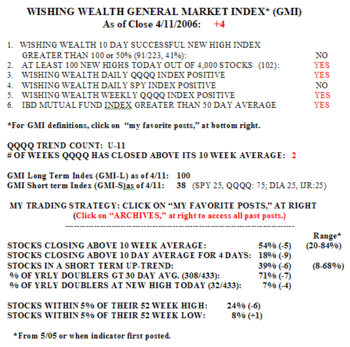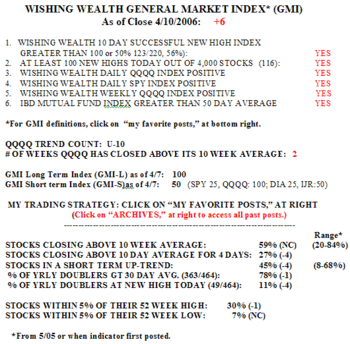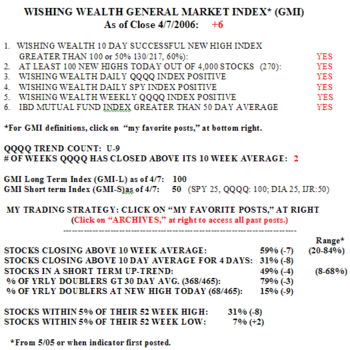The GMI declined on Tuesday. Break out stocks are failing. Only 41% of the stocks that hit a new high ten days ago closed higher Tuesday than they did ten days earlier. 
Please send your comments to: silentknight@wishingwealthblog.com.
Stock Market Technical Indicators & Analysis
The GMI declined on Tuesday. Break out stocks are failing. Only 41% of the stocks that hit a new high ten days ago closed higher Tuesday than they did ten days earlier. 
Please send your comments to: silentknight@wishingwealthblog.com.
The GMI stayed at +6 as stocks tread water. 41% of the Nasdaq 100 stocks rose on Monday along with 48% of S&P stocks and 53% of Dow 30 stocks.
Please send your comments to: silentknight@wishingwealthblog.com.
The GMI remains at +6, but the large cap stocks have weakened, at least in the short term. The GMI-S has fallen to 50, primarily because the Dow 30 and the S&P 500 indexes have declined. 
Please send your comments to: silentknight@wishingwealthblog.com.